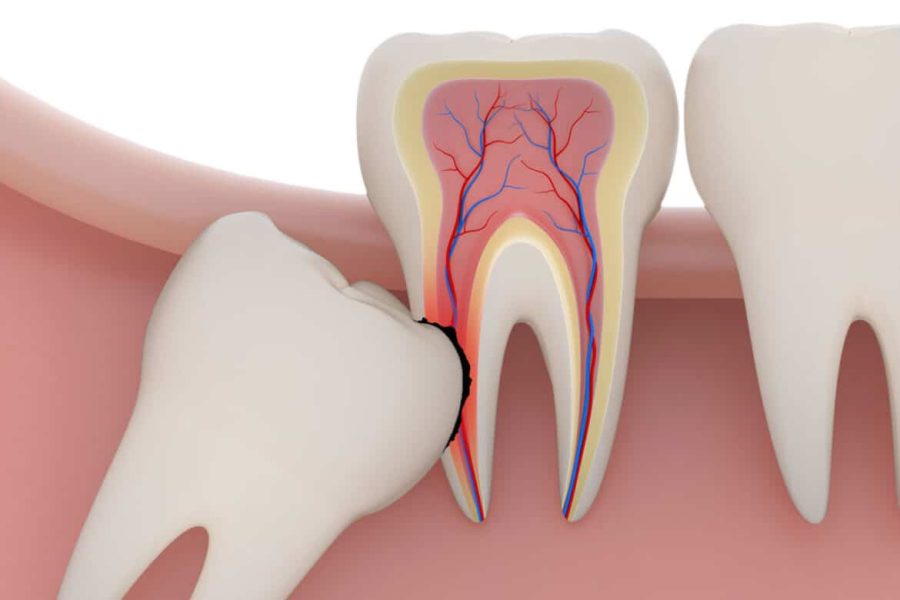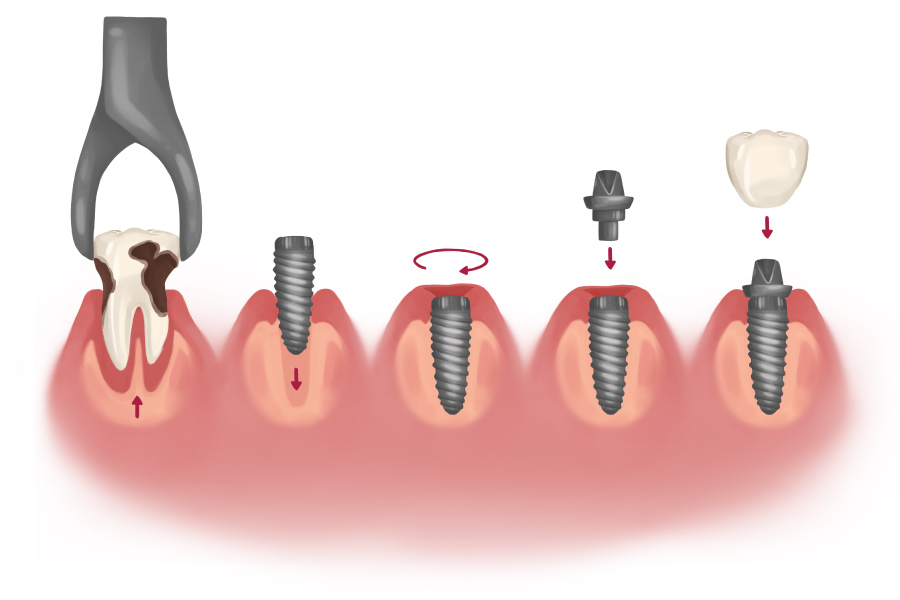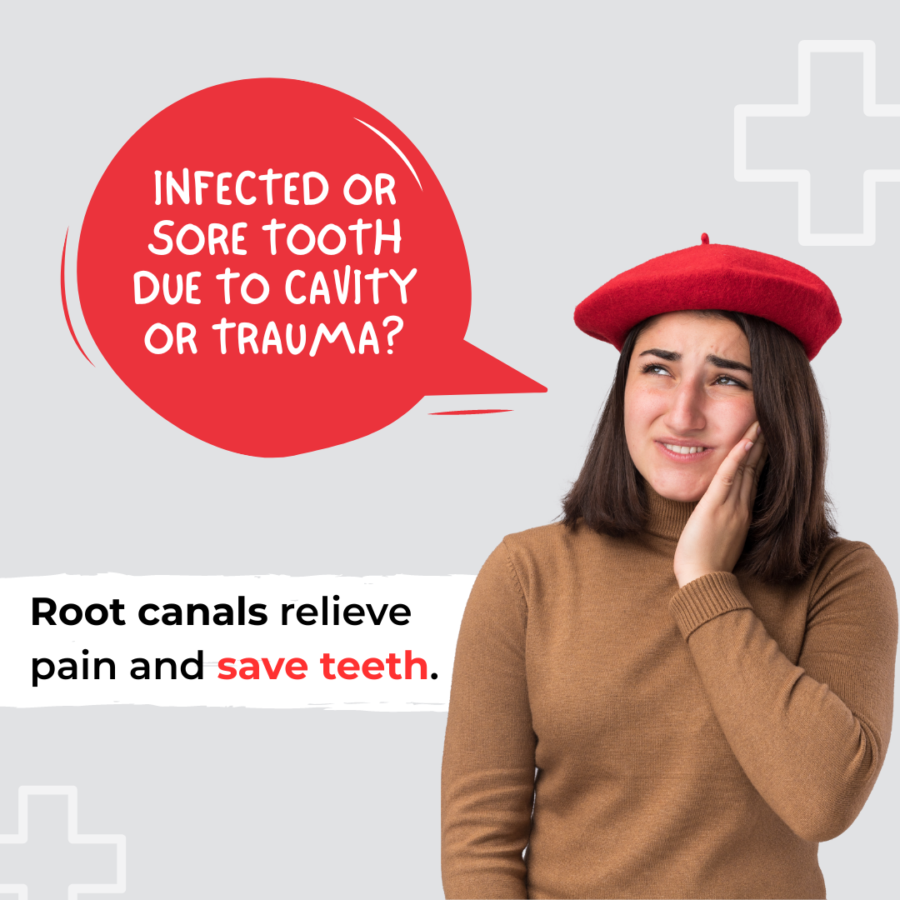It can be frightening to feel ear pain after a tooth extraction, but is it common? Together, let’s solve this riddle. We’ll talk about possible causes for this unexpected discomfort, whether this is a typical side effect, and what you may do to get well. Now that you’ve had a cup of tea, relax and get ready as we demystify the relationship between tooth extractions and earaches without overloading you with medical terminology. Let’s explain it in simple, common terms.
Immediately Post-Extraction Period
When a problematic tooth is extracted to cap off the dental symphony, the post-extraction period becomes an important phase in the patient’s healing process. This stage, which lasts for the first twenty-four hours, requires close monitoring and following post-operative instructions.

Overview of the First 24 Hours
The period of time following tooth extraction that is crucial for the body to start the healing process is the first twenty-four hours. Patients may feel a variety of things at this time, including discomfort and, occasionally, earache. An easy recovery depends on knowing what to anticipate in this initial aftermath.
Blood clot development at the extraction site is critical during this time. The creation of a protective clot, which shields the exposed socket and promotes good healing, is orchestrated by a careful balance of coagulation factors. Any disturbance to this clot could result in difficulties, which emphasizes the significance of exercising caution in these early hours.
Importance of Following Post-Op Instructions
Patients need to follow their dentist’s post-operative instructions to the letter, just like a musician would follow the conductor’s notes. These guidelines function as the sheet music that leads the patient through the composition process of their healing. If these instructions are not followed, it may lead to problems including infection, chronic pain, or even disruptions that affect the ears.

Guidelines for maintaining dental hygiene, dietary restrictions, and the avoidance of specific activities that can compromise the healing process are frequently included in post-operative instructions. Patients who follow these guidelines align with the healing process and make a seamless transition from the post-extraction phase to the succeeding stages of healing.
Managing Initial Discomfort
It is normal to have discomfort in the initial post-extraction phase. For patients looking for comfort during the healing symphony, knowing how to handle this discomfort is essential. Over-the-counter pain relievers are often suggested by dentists to patients in order to relieve discomfort and minimize inflammation. Using cold compresses on the outside of the cheek can also have a calming effect by reducing swelling and pain.
Patients are also cautioned against engaging in any intense activity, such as forceful rinsing or using their tongue or fingers to touch the extraction site. These safety measures help to maintain the fragile blood clot and enable a continuous healing process.
Causes of Ear Pain After Tooth Extraction
Though it may appear as an unanticipated note in the dental symphony, earache after tooth extraction has multiple related reasons. For patients looking for alleviation and clarity in this post-extraction phase, it is critical to comprehend how these causes are orchestrated.
- Nerve Involvement: Tooth extraction can stimulate or mildly traumatize the trigeminal nerve branches, leading to referred sensations and ear pain.
- Inflammation Dynamics: Post-extraction, the body’s natural inflammatory response may extend beyond the oral cavity, causing pressure changes that resonate in the ear.
- Oral and Ear Anatomy Interplay: The intricate connections between the temporomandibular joint (TMJ), Eustachian tube, and oral structures create a synchronized composition where disruptions during extraction can reverberate, contributing to ear pain.
is it normal to have ear pain after tooth extraction?
For patients looking for comfort during the healing process, the question of whether ear pain is a typical pattern following tooth extraction is legitimate. In this segment, we leverage the knowledge of experienced dentist Dr. Chirag Chamria and include statistical viewpoints to decipher the mystery of the normalcy of post-extraction earaches.
Dr. Chirag Chamria’s Insights
An expert in the field of dentistry, Dr. Chirag Chamria, clarifies the complexities of earache following tooth extraction. The closeness of oral and ear tissues, in Dr. Chamria’s opinion, results in a dynamic interplay, and it is not unusual for patients to feel referred sensations in the ear after dental surgeries. He highlights how crucial it is for patients and dentists to communicate openly in order to guarantee a thorough understanding of post-operative symptoms.

Dr. Chamria emphasizes that although moderate ear pain is frequently a typical aspect of the recovery process following extraction, severe or persistent pain requires medical attention. His observations provide patients a more balanced viewpoint by highlighting the necessity of close observation while also noting the possibility of ear-related symptoms.
Statistics on Post-Extraction Ear Pain
Examining statistical data gives our investigation a quantitative component. Recent surveys carried out in dental offices indicate that about 30% of individuals say they have some sort of earache following the excision of a tooth. This figure emphasizes how common this symptom is and shows that it is not an uncommon occurrence.
However, using a critical ear when interpreting numbers is crucial. Patients can react differently to tooth extractions, and a variety of factors, including pre-existing diseases, the difficulty of the extraction, and the patient’s pain threshold, influence how each patient feels about the procedure. Statistical insights provide context for the spectrum of responses that patients may experience, acting as a guide.
How to Treat Ear Pain After Tooth Extraction?
Following tooth extraction, ear pain may seem like an off-key note in the healing process. This section covers how to get relief quickly, and emphasizes how important it is to keep your teeth clean.
Practical Steps for Ear Pain Relief
Gentle Jaw Exercises: Incorporating gentle jaw exercises can promote flexibility and alleviate tension, potentially easing ear pain.
Pain Medication: Over-the-counter pain relievers, as recommended by your dentist, can help manage ear pain and reduce inflammation.
Cold Compresses: Applying cold compresses to the external cheek near the extraction site can provide soothing relief, minimizing swelling and discomfort.
Avoiding Irritants: Refrain from activities that may irritate the extraction site, such as vigorous rinsing or touching the area with your tongue or fingers.
Rest and Elevation: Adequate rest and keeping the head elevated, especially during sleep, contribute to optimal blood circulation and aid in the body’s natural healing processes.
Follow Post-Op Instructions: Adhering to the post-operative instructions provided by your dentist is paramount. This includes dietary restrictions, oral hygiene practices, and any specific recommendations for managing ear pain.
Importance of Maintaining Oral Hygiene
Prevention of Infection: Proper oral hygiene, including gentle brushing and rinsing as advised by your dentist, prevents infection at the extraction site, reducing the risk of ear-related complications.
Promotion of Healing: Maintaining oral hygiene supports the overall healing process. A clean oral environment facilitates the formation and preservation of the blood clot at the extraction site, crucial for optimal recovery.
Reduction of Inflammation: Regular oral care helps manage inflammation not only at the extraction site but also in the surrounding tissues, mitigating the potential impact on the ears.
Prevention of Secondary Complications: Good oral hygiene acts as a barrier against secondary complications that may exacerbate ear pain. It is a proactive measure to ensure a smooth and uneventful recovery.
Conclusion
We have uncovered the mysteries surrounding earache following tooth extraction in this symphony of dental insights. Recall that temporary ear pain is frequently a component of the soothing tune. An easy recovery is mostly dependent on proactive dental maintenance, which includes soft procedures and following post-operative recommendations. Success stories demonstrate Dr. Chirag Chamria’s dedication to patient well-being, which aligns with the seamless integration of individualized care. As you work through “How to Treat Ear Pain After Tooth Extraction,” put your faith in your dentist’s knowledge and take preventative measures to maintain good dental health for a victorious conclusion to your road to wellness.
© All rights reserved by Royal Dental Implants Pvt Ltd Issued in the public interest






